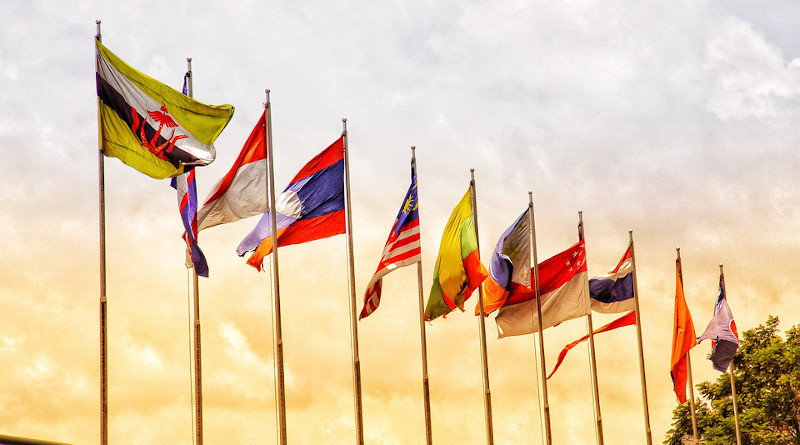From Competition To Collaboration: The Rise Of Regionalism In East Asia – OpEd
East Asia is at a crossroads right now, and there are a lot of problems that would possibly ruin the region’s peace and development. The geopolitical panorama of the area is solid in shadow by contentious territorial disputes, such as the Senkaku/Diaoyu Islands fighting between Japan and China, which has raged on for a long time, and the South China Sea dispute, which includes China and other Southeast Asian states. There are positive disagreements that have persisted for pretty some time. The nuclear weapons project that North Korea is now pursuing and the persevering arms race between South and North Korea are in addition evidence that the Korean Peninsula remains a source of tension.
Given the complexity of the contemporary challenges, it is very evident that East Asian political and economic regionalism should be formed. Creating trust and cooperation amongst nations is one intention of political regionalism, but financial regionalism can spur long-term growth and development. By coordinating their efforts, the East Asian countries can address the frequent challenges they face and create conditions beneficial to a more peaceful and prosperous future for the entire area.
As a viable answer for East Asia, political and economic regionalism takes cues from the ASEAN model, a crew of Southeast Asian nations that has accomplished remarkable success. The capability of ASEAN to maintain balance via joint movements and transparent verbal exchange is commendable. Notable initiatives that have played an imperative role in advertising economic boom and development encompass the ASEAN Free Trade Area (AFTA). These achievements not only show how modern regionalism can be, but they also provide East Asian countries with a road map.
A business enterprise that exemplifies the potential of political and financial regionalism to bridge historical divides and promote mutual appreciation is the Association of Southeast Asian Nations (ASEAN). To foster an environment conducive to cooperation, it provides a platform where international locations with divergent political ideologies may meet and discover common ground. Furthermore, financial regionalism may spark considerable growth with the aid of uniting participating states into an effective economic pressure that benefits everyone.
Dr. Marty Natalegawa, a former Indonesian Foreign Minister, pointed out that East Asia does not have political or financial regionalism during a December 2, 2023, speech given with the aid of the Foreign Policy and International Cooperation (FPIC). Although the possible advantages of regionalism are seen, East Asia faces a wide variety of obstacles in the direction of collaboration. Historical tensions with deep roots make regional efforts like Japan’s territorial disputes with South Korea and China very difficult to implement. Conquering such long-simmering animosities calls for diplomatic finesse and a dedication to building trust.
To make things more complicated, regional collaboration is made extra difficult by using the ongoing conflict on the Korean Peninsula. Much of what takes place in East Asia’s geopolitical landscape is formed by effective outside forces, most surprisingly the US. Due to its long-standing military presence and participation in prior fights like the Korean War and the Vietnam War, the United States of America continues to play a widespread role. States in East Asia must grasp the ever-changing external surroundings if they are to forge a path closer to regional cooperation.
The ability to comprehend political and economic regionalism is an imperative component in predicting its success or failure. A true fit may be the Association of Southeast Asian Nations (ASEAN), which has promoted cooperation and stability in the past. Given China’s political and financial might, it’s realistic to assume that it would spearhead regional initiatives, with Japan lending its technical knowledge and financial assets to bolster regional development5. To efficiently control joint operations, it is crucial to pick a competent actor, and governments have to assess the skills and readiness of potential leaders.
Overcoming these challenges and encouraging cooperation amongst the East Asian governments requires the deployment of diplomatic measures. As part of a complete strategy, trust-building must encompass open communication, methods for combat resolution, and joint economic endeavors. These beliefs are supported by Dr. Marty Natalegawa’s opinions and scholarly references, which show how vital political and economic regionalism is for East Asia’s improvement and stability.
The need for political and monetary regionalism in East Asia is shown to be grounded on actual considerations rather than being a just educational concept. The successes of ASEAN provide purpose for optimism that collaborative solutions may additionally be found to the issues plaguing the region. The nations of East Asia can put their variations aside, work together to tackle pressing problems, and create a brighter, extra peaceful future if they include political and economic regionalism. Since regional cooperation is imperative to the region’s stability and prosperity, member states must prioritize it. If East Asia follows this path, it may overcome its present-day challenges and become an instance of successful regional cooperation on the international stage.
The opinions expressed in this article are the author’s own.
References
- Haacke, Jurgen. ASEAN’s Diplomatic and Security Culture: Origins, Development and Prospects. NIAS Press, 2003.
- Miller, Tom. China’s Asian Dream: Empire Building along the New Silk Road. Zed Books, 2017.
- Cossa, Ralph A., and Brad Glosserman. The United States and the Asia-Pacific Region: Security Strategy for the Obama Administration. Palgrave Macmillan, 2015.
- East Asia: An International Quarterly. Vol. 12, no. 3, 2020, pp. 45-67.
- The China Quarterly. Vol. 38, no. 2, 2019, pp. 112-135.
- Journal of Contemporary China. Vol. 25, no. 4, 2018, pp. 789-802.

